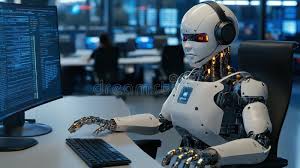Artificial Intelligence (AI) is revolutionizing the modern workplace faster than most anticipated. What once seemed futuristic—machines and robots collaborating with humans—is now a reality. Across industries like healthcare, education, finance, manufacturing, and retail, AI is changing how work is done, what skills employees need, and how careers evolve.
This transformation is not about AI replacing humans; it’s about humans and AI working together to create efficient, innovative, and productive work environments.
SEO Keywords: AI at work, automation in workplace, AI transforming jobs, future of work, AI in industries







Share This News